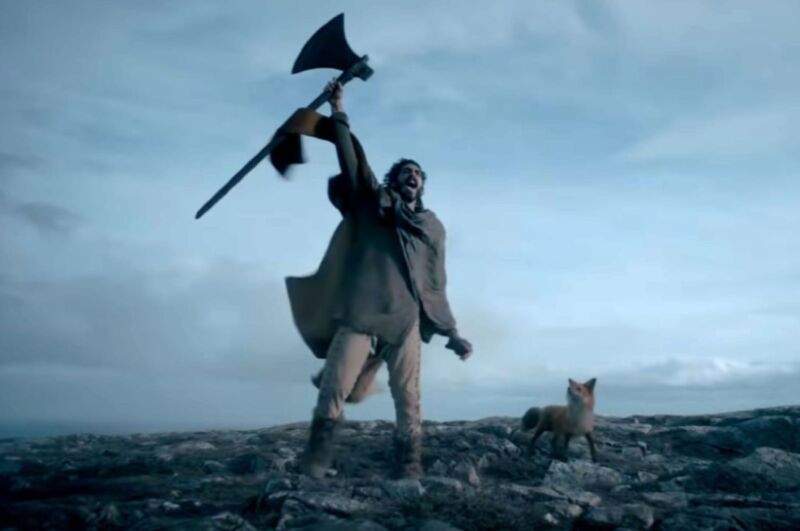
The tale of Sir Gawain and the Green Knight, immortalized in a 14th-century anonymous poem, is among the most popular of the Arthurian legends, second only to the quest for the Holy Grail. Yet I would argue that it has never been successfully adapted to film—until now. Director David Lowery's new film, The Green Knight, takes some necessary liberties with the source material. But he also artfully weaves in elements and symbols from that source material to create a darkly brooding fantasy quest that is just as richly textured and layered as the medieval poem on which it is based.
(Major spoilers for the 14th-century medieval poem below; some additional spoilers for the film are below the gallery.)
Let's lay out the basics of the original poem before discussing the clever ways in which Lowery (A Ghost Story, Pete's Dragon) has reimagined it. As I've written previously, Sir Gawain and the Green Knight falls into the chivalric romance genre, relating a well-known story from Arthurian legend in distinctively alliterative verse. (Alliteration was all the rage at the time. I highly recommend J.R.R. Tolkien's translation from 1925 or Simon Armitage's 2008 translation, recently revised.)
On New Year's Day, King Arthur and the knights of the Round Table gather at Camelot to feast and exchange gifts. A mysterious Green Knight disrupts the festivities and proposes a different kind of exchange: any one of the knights may strike him with one blow with his axe; in return, the Green Knight will come back in a year to return the blow. Sir Gawain, the youngest of the knights and nephew to Arthur, accepts the challenge and beheads the Green Knight. Everyone is shocked when the Green Knight picks up his severed head. He says Gawain must meet him at the Green Chapel one year hence to receive a similar blow, per their bargain.
As the deadline approaches, Gawain embarks on a quest to find the Green Chapel, having plenty of adventures and battles along the way. Finally, he arrives at a castle, and the lord and lady invite him to stay as their guest. The lord, Bertilak de Hautdesert, proposes another bargain: he will go out hunting every day and give Gawain whatever he catches, provided Gawain gives the lord anything he gains during the same day. And every day, the lady of the castle attempts to seduce the young knight while her husband is away. Gawain is caught between two competing codes: the code of chivalry demands that he not betray his host's trust by sleeping with his wife, but the code of courtly love demands that he do whatever a damsel requests.
He manages to courteously fend off the lady's advances for two days, granting her only one and two kisses, respectively, which Gawain then passes on to the lord when he brings back a deer and a boar. On the third day, when Gawain once again spurns her advances, the lady tries to give him a gold ring. He declines the gift. But when she next offers him a green and gold silk sash that she swears will protect him from physical harm, Gawain—knowing his rendezvous with the Green Knight approaches—accepts in a moment of weakness. Then they exchange three kisses. He passes the three kisses on to the host when the lord returns with a fox, but Gawain doesn't tell his host about the lady's sash.
The next day, Gawain rides off to meet the Green Knight, who delivers the return blow. Gawain, who is wearing the sash, only suffers a minor nick on the neck. Technically, he "wins" their game, but the Green Knight reveals himself to be none other than Lord de Hautdesert—transformed by the magic of Morgan Le Fay—and says that the entire yearlong scheme was meant to be a test of the Arthurian knights. Had Gawain told the lord about the sash, he would not have even suffered a slight wound on his neck. So Gawain's "victory" is also a source of personal shame.
A knight comes of age
Lowery's challenge was to remain true to the original text's major themes and rich symbolism, while making the character of Gawain and the story of his quest more relatable and resonant for modern audiences. Most notably, Lowery opted to make Gawain a callow young man who aspires to earn the right to join the Knights of the Round Table by proving his honor and bravery—confronting some hard truths about himself along his journey. (In the poem, Gawain is already a distinguished knight.)
When we first meet young Gawain (Dev Patel, Slumdog Millionaire), he is waking up in a brothel on Christmas Day, where he has spent the night carousing with his lover, Essel (Alicia Vikander, Ex Machina, Man from U.N.C.L.E.). He returns home to his disapproving mother (Sarita Choudhury, Lady in the Water)—yep, he still lives with his mom—before heading off to King Arthur's court for the holiday festivities.
(WARNING: Some spoilers for the film, below.)
 Gawain (Dev Patel) is King Arthur's headstrong nephew, who aspires to be a knight of the Round Table.
Gawain (Dev Patel) is King Arthur's headstrong nephew, who aspires to be a knight of the Round Table.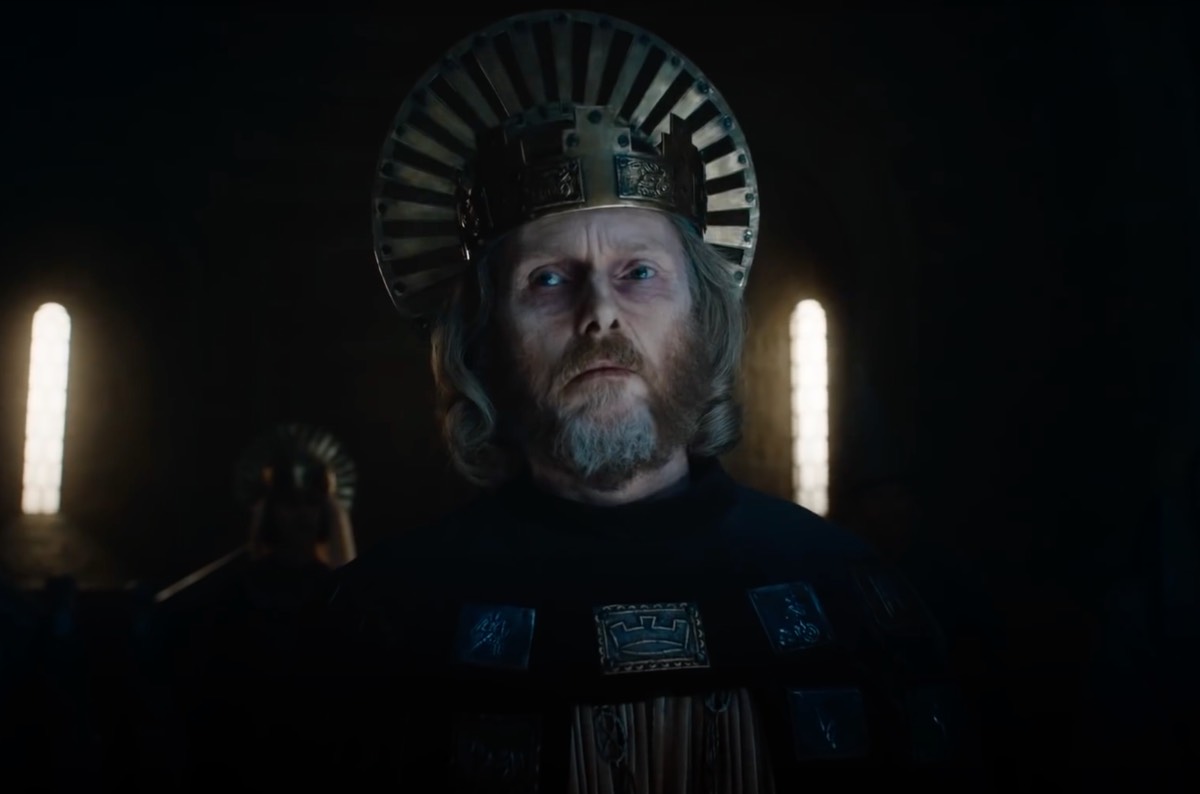 Sean Harris plays King Arthur.YouTube/A24
Sean Harris plays King Arthur.YouTube/A24 Katie Dickie plays Queen Guinevere.YouTube/A24
Katie Dickie plays Queen Guinevere.YouTube/A24 The Green Knight (Ralph Ineson) challenges any takers to an exchange of blows with his axe.YouTube/A24
The Green Knight (Ralph Ineson) challenges any takers to an exchange of blows with his axe.YouTube/A24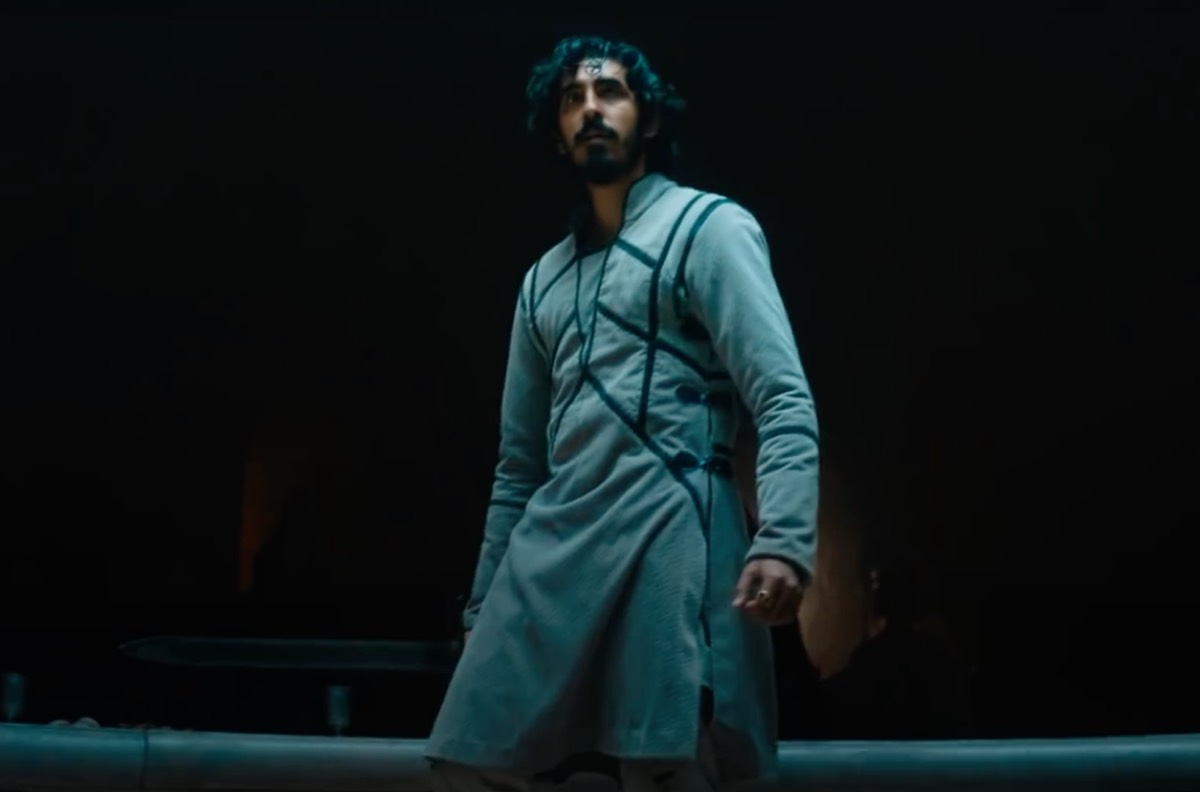 Eager to prove himself, Gawain accepts that challenge.YouTube/A24
Eager to prove himself, Gawain accepts that challenge.YouTube/A24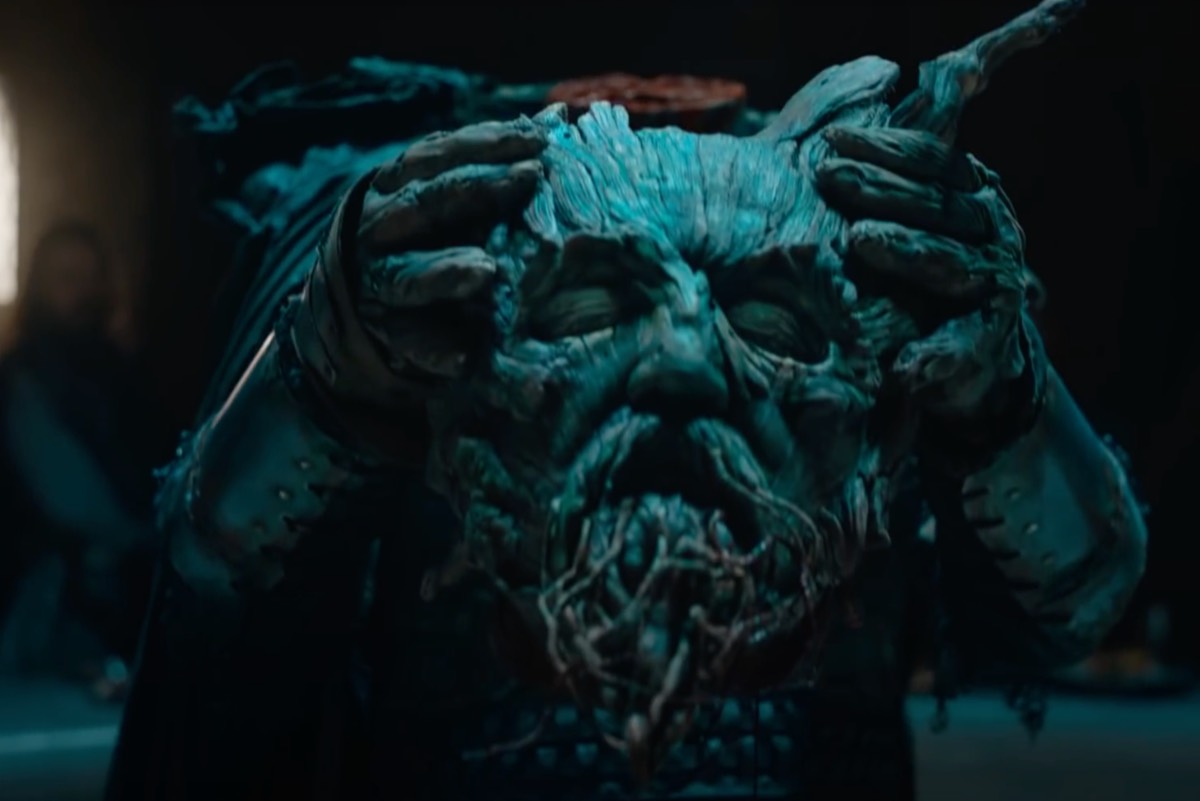 The Green Knight survives his beheading. As one does.YouTube/A24
The Green Knight survives his beheading. As one does.YouTube/A24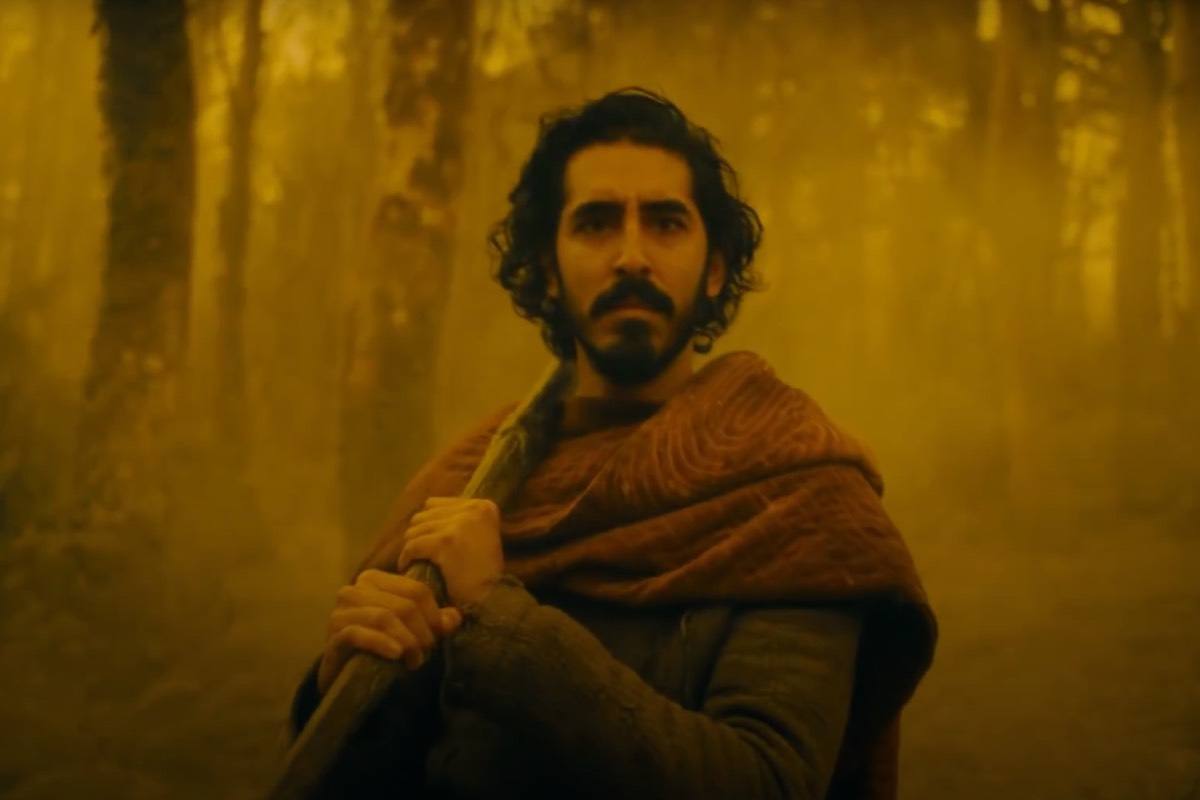 Gawain sets out on his quest.YouTube/A24
Gawain sets out on his quest.YouTube/A24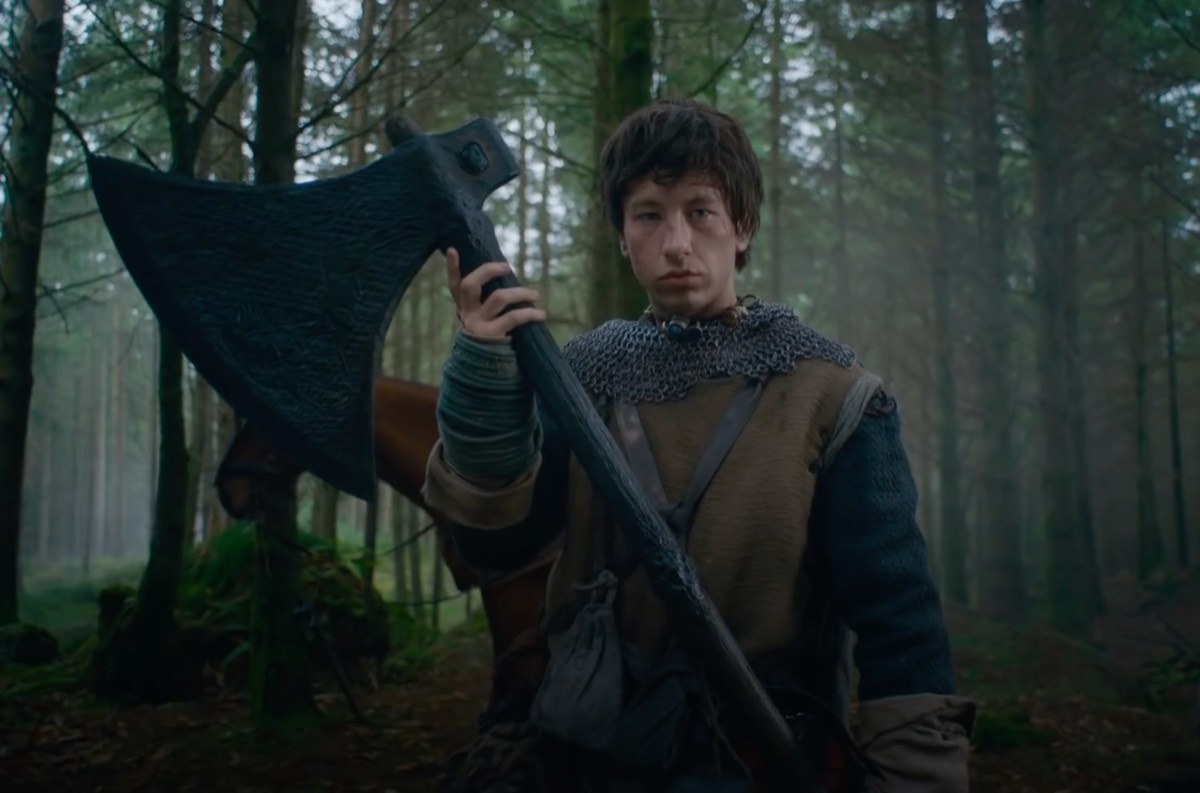 A scavenger (Barry Keoghan, the pasta-chomping weirdo from The Killing of a Sacred Deer) waylays Gawain on his quest.YouTube/A24
A scavenger (Barry Keoghan, the pasta-chomping weirdo from The Killing of a Sacred Deer) waylays Gawain on his quest.YouTube/A24 That's not a pleasant premonition.YouTube/A24
That's not a pleasant premonition.YouTube/A24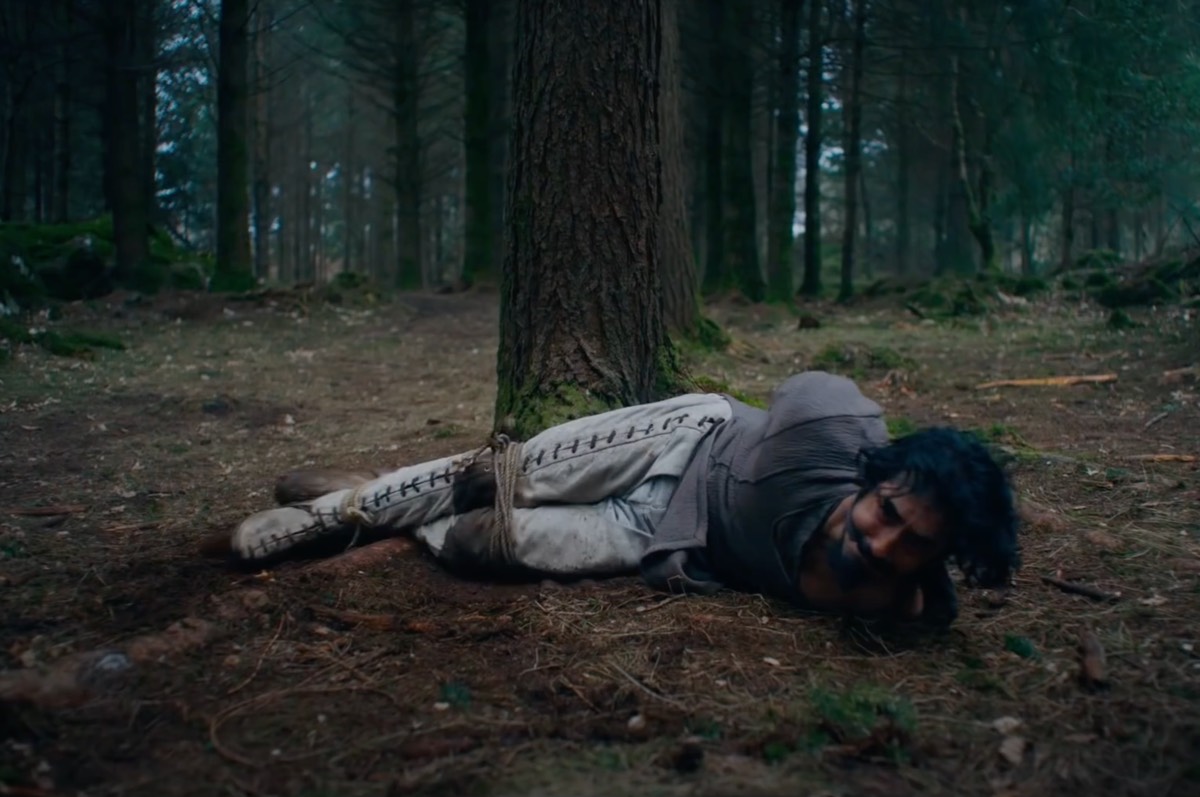 Gawain must choose to give up or figure out how to free himself.YouTube/A24
Gawain must choose to give up or figure out how to free himself.YouTube/A24 Gawain befriends a little fox for part of his journey.YouTube/A24
Gawain befriends a little fox for part of his journey.YouTube/A24 Gawain encounters giants.YouTube/A24
Gawain encounters giants.YouTube/A24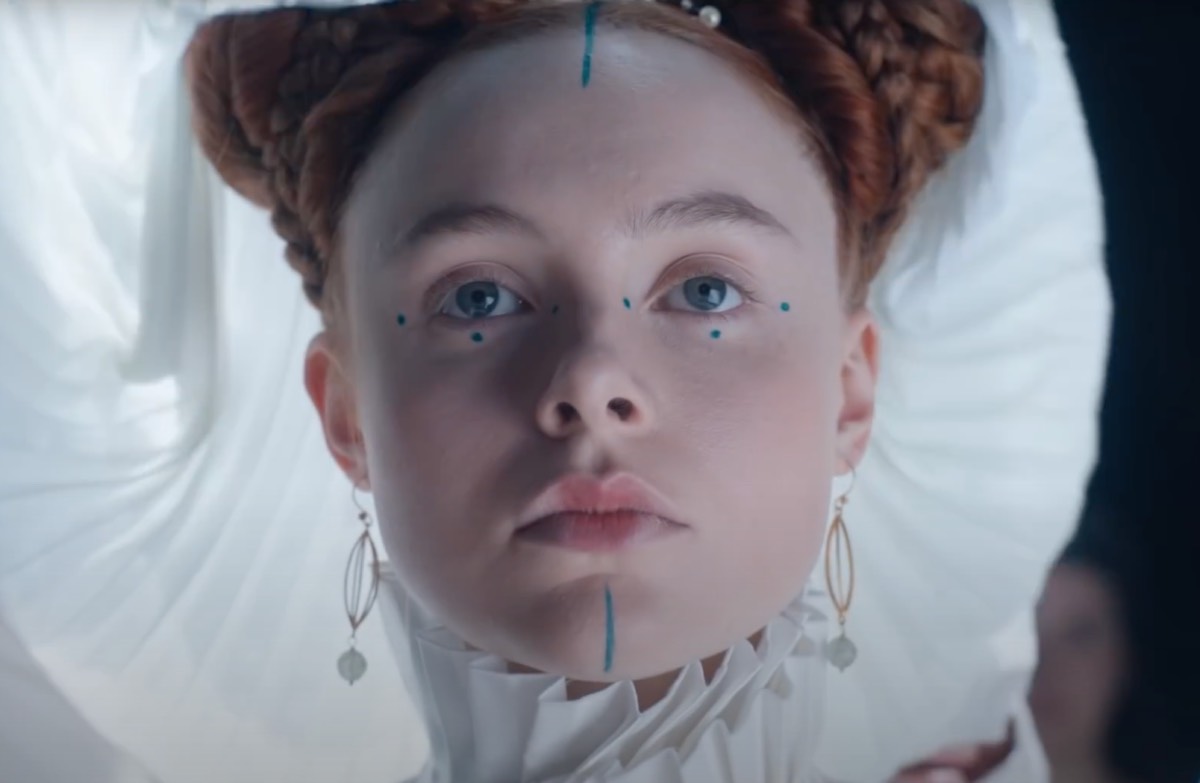 Erin Kellyman plays a mysterious woman based on the legend of Saint Winifred.YouTube/A24
Erin Kellyman plays a mysterious woman based on the legend of Saint Winifred.YouTube/A24 The Lady (Alicia Vikander) presents Gawain with the gift of a book.YouTube/A24
The Lady (Alicia Vikander) presents Gawain with the gift of a book.YouTube/A24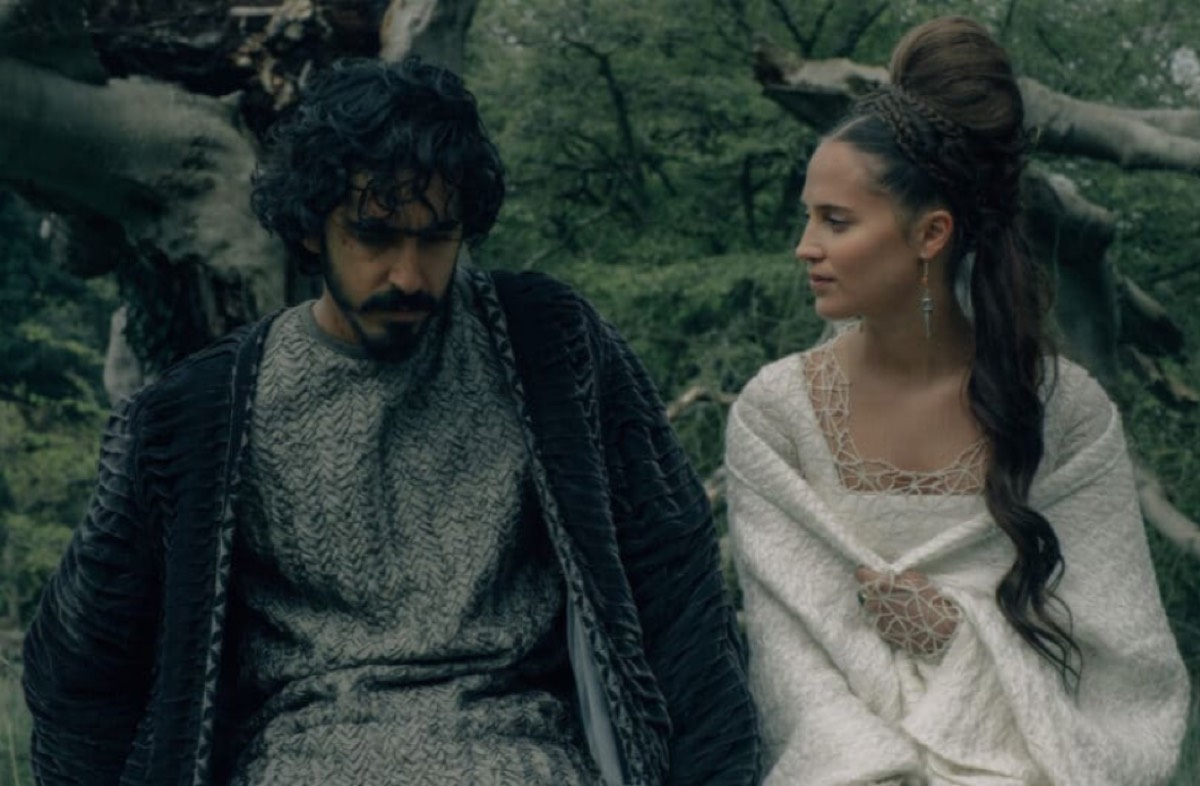 Gawain must resist her seductive advances.YouTube/A24
Gawain must resist her seductive advances.YouTube/A24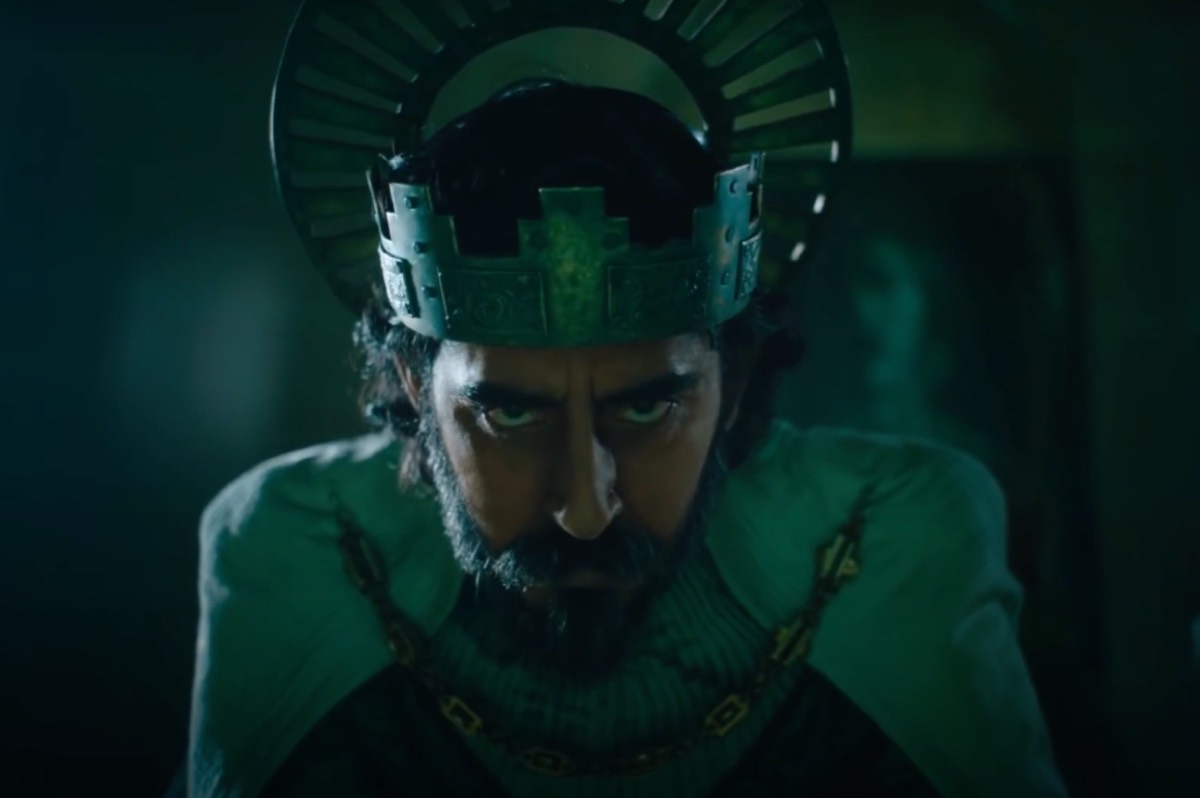 Gawain glimpses a potential future where he is crowned king.YouTube/A24
Gawain glimpses a potential future where he is crowned king.YouTube/A24 Win or lose, Gawain will never be the same.YouTube/A24
Win or lose, Gawain will never be the same.YouTube/A24
Invited to sit beside Arthur (Sean Harris, Prometheus, Mission: Impossible - Fallout) and Queen Guinevere (Katie Dickie, Game of Thrones, Prometheus), Gawain is asked to regale the group with a tale of his heroic adventures—and realizes he has no such stories to tell. Meanwhile, his mother is seen casting a mysterious spell, which might be related to the sudden appearance of the Green Knight (Ralph Ineson, Game of Thrones, Absentia, The VVitch) at court.
The beheading game plays out pretty much like it does in the poem, and a year later, Gawain embarks on his journey to the Green Chapel to keep his end of the bargain—and most likely lose his head. His mother gives him a green and gold belt (girdle) that she swears will keep him safe from harm. The film also hews reasonably close to the original tale when Gawain takes refuge in the castle of a Lord (Joel Edgerton, Midnight Special, Star Wars Episodes II and III) and Lady (also played by Vikander). Lowery has added a mysterious, blindfolded old dowager who lurks in the background as the two play their own little game of gift exchange and seduction with Gawain.
The middle act is when The Green Knight really diverges from the source material. Gawain's harrowing journey to find the Green Chapel and fulfill his promise is referenced only in vague terms in the poem: there is a passing mention of skirmishes and giants, and the harsh weather he endures, for instance. Lowery has fleshed out this part of Gawain's story to create a more traditional three-act structure of the protagonist's journey.
First, Gawain is waylaid by a forest scavenger (Barry Keoghan, Dunkirk) who robs him, binds him, and leaves him for dead. After freeing himself, Gawain befriends a little fox and asks a tribe of giants to point him north. Later, he meets a ghostly woman identified onscreen as Saint Winifred (Erin Kellyman, Falcon and the Winter Soldier). She entreats him to retrieve her severed head from a lake and, in exchange, tells him the Green Knight is someone he knows. This is not in the original poem at all—although there is passing mention of St. Winifred's Well—but thematically, it's a fitting addition, since the legend of Saint Winifred holds that she was beheaded by a suitor for refusing his advances and a spring formed where her head fell. (She came back to life when her head was rejoined with her body.)
A rich tapestry
Patel is an inspired choice to play Gawain. He has the charisma to make a flawed, spoiled young man likable enough that we empathize with his struggles and humiliations. That's a crucial factor in how Gawain's final encounter with the Green Knight in the chapel plays out—another example of how Lowery's thoughtful embellishments on the poem both underscore and enhance its themes and emotional power. In this case, we keenly feel Gawain's sense of crushing shame over failing to live up to the impossible ideals of the Arthurian codes as he struggles to overcome his fear of death. It's an open question how everything he has experienced will influence the kind of man he chooses to become.
The character of the Green Knight has been interpreted by some scholars as representing the Green Man from pagan folklore, and that's how the character is depicted in Lowery's film: a greenish face with the texture of wood, peering out through thick foliage. The Green Chapel is a ruin overgrown with vines, moss, and other plants—the wild chaos of nature encroaching on the crumbling remnants of civilization's attempts to tame it. And there are strong hints that Gawain's mother is Morgan Le Fay, whose magic may have set the film's events in motion—although Lowery is wise enough to leave her true identity ambiguous. (She is not Gawain's mother in the poem; that would be Arthur's other half-sister, Morgause).
Lowery has cited multiple films that influenced him over the years as he worked to bring The Green Knight to life onscreen: Willow, Bram Stoker's Dracula, The Dark Crystal, Marie Antoinette, and The Passion of Joan of Arc, a 1928 French silent film by Carl Dreyer. (See the embedded video at the end of this review for Lowery's take on each of them.) Excalibur is another obvious influence, particularly since Lowery shot his film in many of the same locations in Ireland.
One can definitely see elements from all those sources in The Green Knight, but the tapestry Lowery has woven out of so many disparate threads is every inch an original vision. There are no quick cuts or frenetic action sequences. Lowery takes the time to let the story unfold at a leisurely pace, drawing the viewer into the Arthurian world he has created, as seen through the eyes of young Gawain. At times, the film takes on a hallucinatory quality. Just as the 14th-century poem continues to fascinate us some 700 years later, this strange, powerfully evocative film will have you mulling over everything you've just seen, pondering various interpretations, long after you've left the theater.
The Green Knight is now playing in theaters. We strongly recommend only watching movies in theaters if you have been fully vaccinated.
"Review" - Google News
July 31, 2021 at 11:55PM
https://ift.tt/3BVoIc9
Review: The Green Knight weaves a compelling coming-of-age fantasy quest - Ars Technica
"Review" - Google News
https://ift.tt/2YqLwiz
https://ift.tt/3c9nRHD
Bagikan Berita Ini














0 Response to "Review: The Green Knight weaves a compelling coming-of-age fantasy quest - Ars Technica"
Post a Comment